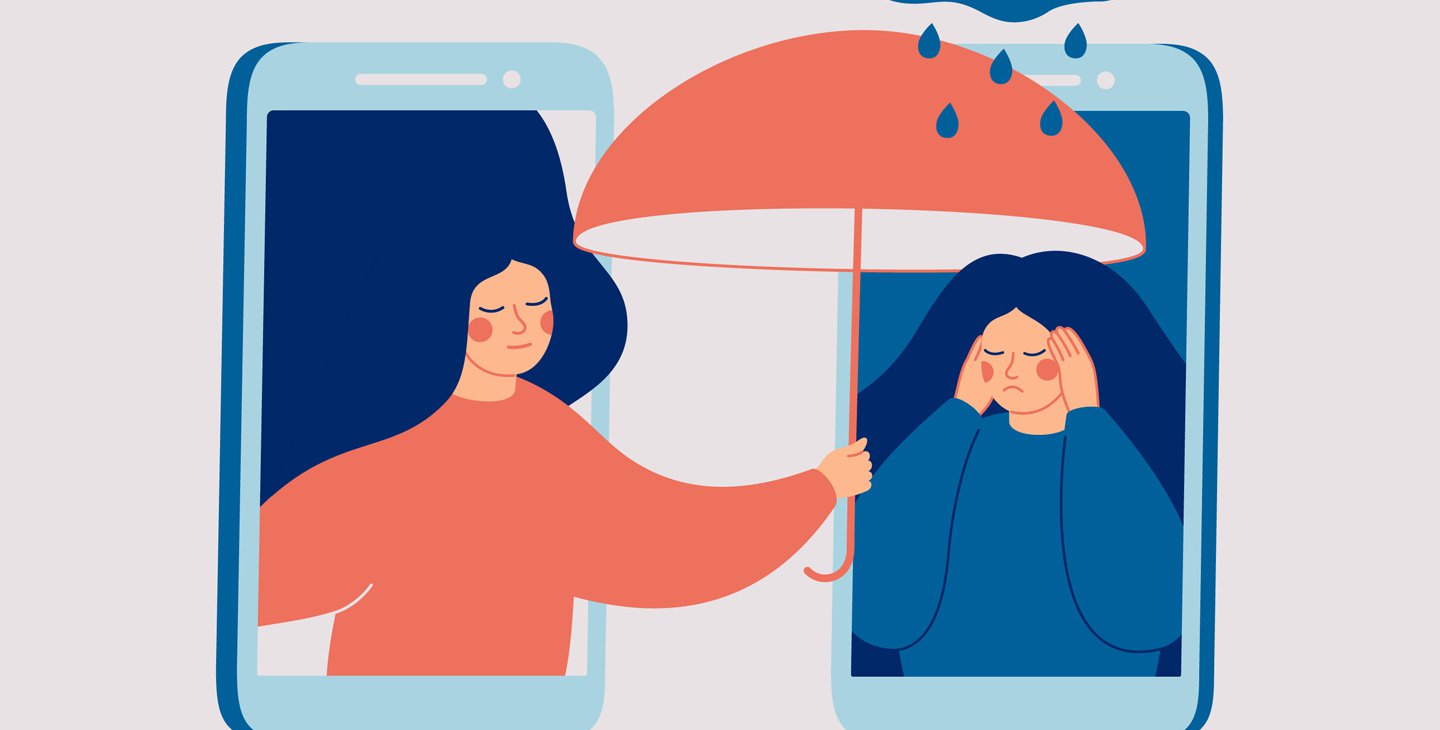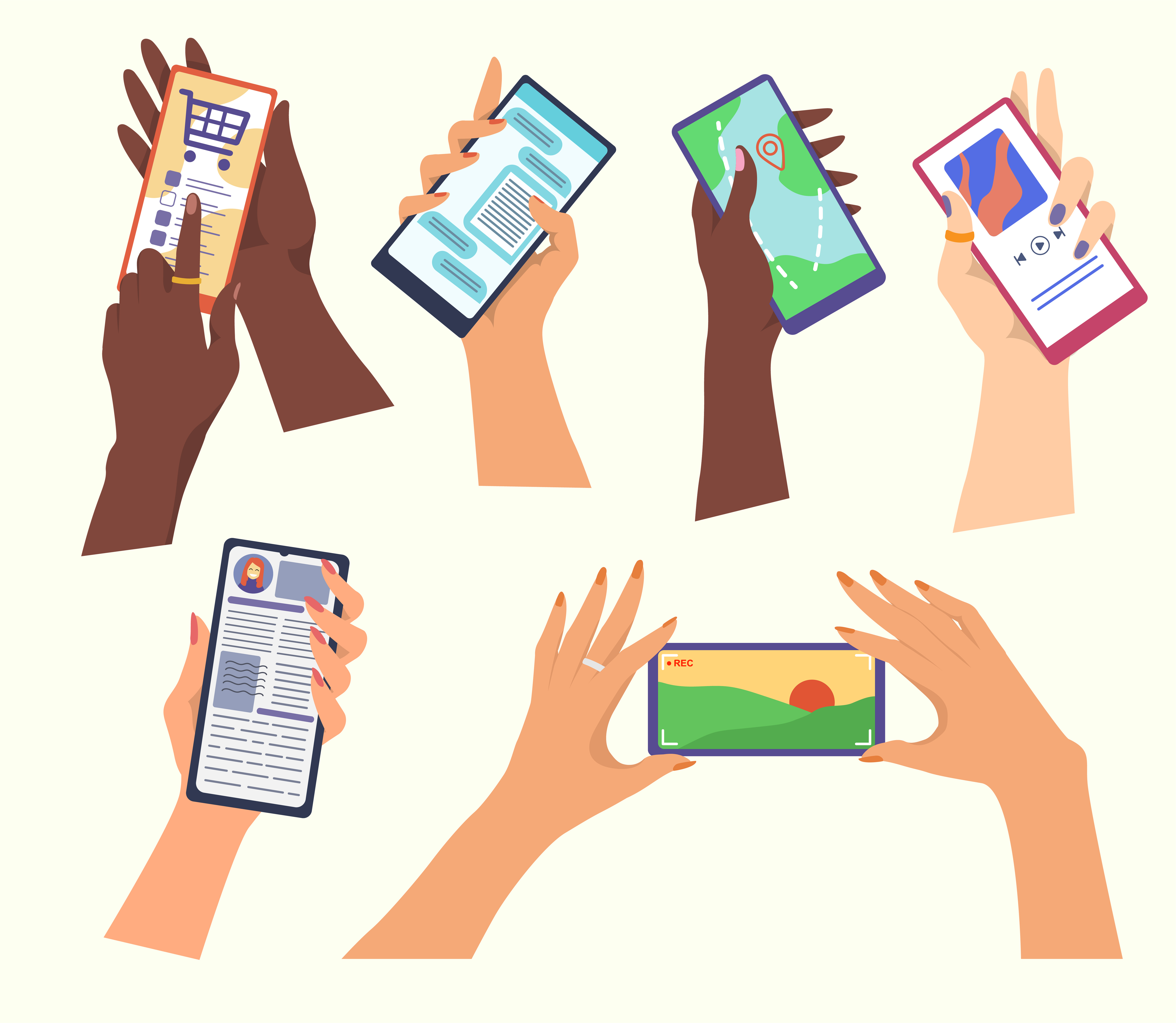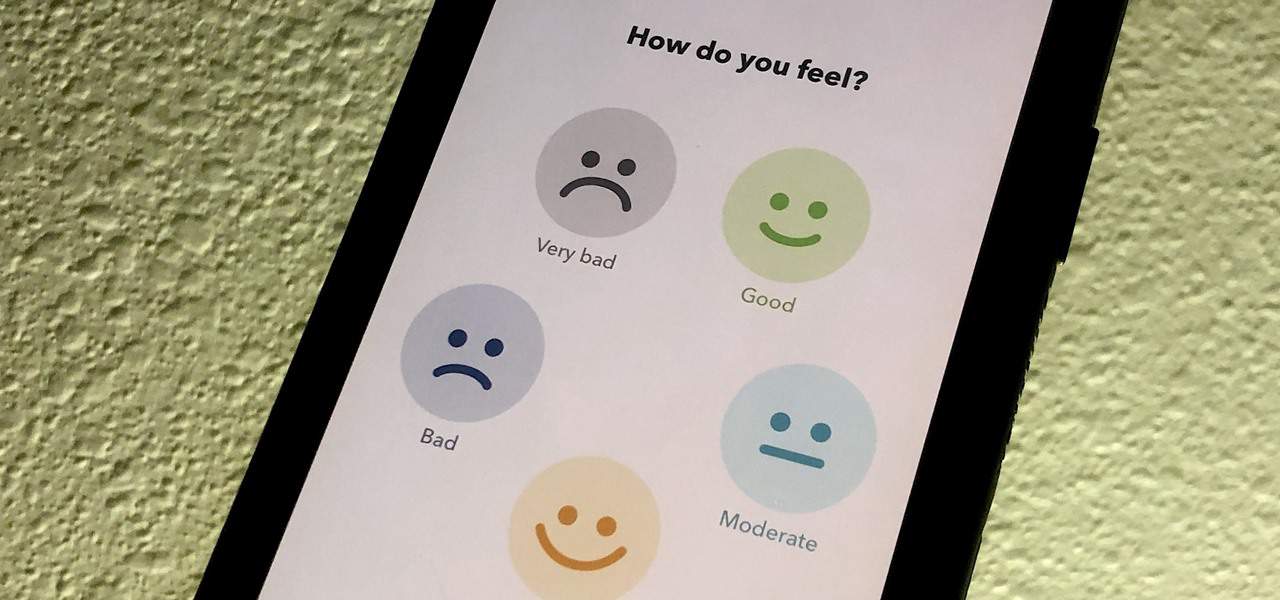Because there are an increasing number of people struggling with neurological or mental difficulties, mental health has become an enormous global issue. Technology is entirely to blame for the radical changes in the mental health picture. Using mental health apps, which enable people to manage their mental health and wellbeing, is now a common solution to this problem. These applications provide a ton of great features, including the ability to measure your sleep, practice meditation, and even receive cognitive behavioral therapy.
The main focus of this article is to explore the prevalent mental health issues and the role of specific apps in managing them effectively. We will also explore the different types of mental health apps, the best apps currently available on the market and how to create a mental health app.
The Most Common Mental Health Problems
For our benefit, technological developments have resulted in a wide range of mental health apps that can be extremely helpful in addressing our mental health issues. These apps provide us with a vast array of tools, direction, and support to assist us in managing a variety of mental health conditions. The most prevalent mental health issues will be covered in detail in the next part, along with how these useful mental health applications can assist in resolving them.
Anxiety Disorders
It's likely that you have an anxiety condition if you consistently feel overly anxious, jittery, or on edge. These conditions could include, to name a few, social anxiety disorder, panic disorder, or generalized anxiety disorder. To assist you manage your anxiety symptoms, mental health apps fortunately include some amazing resources including deep breathing exercises, cognitive-behavioral therapy techniques, and guided meditation.
Depression
Mental health applications could be a genuine game-changer for you if you're feeling low and hopeless and facing a mood condition called depression, which can cause emotions of complete hopelessness, despair, and an extreme lack of motivation. These applications provide a variety of tools, such as mood tracking, mindfulness training, and even CBT (cognitive-behavioral therapy) techniques, to help you deal with your depressing symptoms.
Sleep Disorders
When it comes to sleep issues, they can seriously damage your mental health by making you extremely stressed, drained and constantly weary. But don't worry—apps for mental wellness are here to the rescue! They are equipped with useful sleep monitoring tools, instruction in guided meditation, and relaxation methods that can greatly enhance the quality of your sleep. These apps can help you if you're having trouble getting some shut-eye.
Post-Traumatic Stress Disorder (PTSD)
A mental health disorder known as PTSD may set in if you've gone through anything extremely traumatic, such experiencing or watching a terrible incident. However, there are things you can do to assist manage the symptoms, so don't worry. For instance, you might consider engaging in mindfulness training, doing breathing exercises, or even trying out some relaxation techniques. You can reduce those unpleasant PTSD symptoms with the use of all of these strategies.
Types of the Apps
Here, we'll delve further into the many categories of mental health apps that are currently on the market:
Meditation Apps
Meditation apps might be the answer if you're trying to reduce stress, control anxiety, or get rid of a persistent sense of despair. These apps provide a variety of guided meditations and mindfulness exercises to help you improve your mental health. You can't go wrong with top meditation apps like Headspace, Calm, or Insight Timer, as they provide everything you need to improve your mental health.
Sleep Apps
These apps focus on monitoring your sleep habits, improving the quality of your sleep, and treating any disturbing sleep problems that may be keeping you up at night. The sleep app market has some pretty heavy hitters: with a ton of useful features like sleep tracking, relaxation drills, and even some calming music, apps like Sleep Cycle, Pillow, and Relax Melodies have got your back.
Mood Tracking Apps
There are several really great mood monitoring apps available that can help you keep track of your emotions and moods. With the help of these applications, you may track and analyze your emotions over time in order to identify trends and identify the true causes of your ups and downs. You now have some excellent options for tracking your mood, like Daylio, Moodfit, and Youper. These tools enable you to record your moods, feelings, and activities so you may begin seeing trends and monitoring your progress toward your mental health objectives.
Cognitive Behavioral Therapy Apps
Users who utilize CBT-based apps can learn to control their negative thoughts, feelings, and behaviors. There are numerous CBT apps available, such as Woebot, Moodfit, and Pacifica. These tools make use of research-proven techniques to help people recognize unfavorable thought patterns, regulate their emotions, and create useful coping mechanisms. Through these apps, users can keep updated on their progress and interact with mental health experts.
The Best Apps
Finding the ideal mental health app for your requirements can be rather difficult. It's simple to become overwhelmed by the sheer number of them available. But don't worry, we have your back. To help you successfully navigate the realm of mental wellness, we've gone ahead and put together a list of the top mental health apps.
Headspace: For individuals who are anxious, agitated, or sad, this app is made to offer guided meditations. It also offers progress monitoring features, sleep meditations, and breathing exercises.
Calm: This software provides users with a variety of stress, anxiety, and depression management approaches, including breathing exercises, sleep stories, and guided meditations. To assist users in maintaining their progress toward their mental health goals, it also offers daily reminders and a personalized progress monitor.
Moodfit: To assist you in controlling those bothersome negative emotions and thoughts, this mental health software employs a dual-barreled strategy that combines cognitive behavioral therapy techniques with useful mood tracking capabilities. You may access guided self-help sessions, a mood tracker to monitor your emotional ups and downs, and even some mindfulness exercises to help you stay grounded using this app. It's like always having your very own pocket therapist nearby!
Pacifica: This program uses cognitive-behavioral therapy methods to assist users in overcoming stress, anxiety, and depression. It gives users a variety of useful services, including guided self-help sessions, mood tracking tools, and relaxing strategies. Users who make use of these characteristics can more fully comprehend their cognitive functions and control their emotions.
The Technological Stack Needed for the Development
The correct technology stack must be chosen if you want to ensure that your mental health app is effective. It's all about usability, security, and functionality. Now, let me give you an overview on some of the major technologies and tools that are frequently employed when it comes to creating excellent mental health apps:
Mobile App Development Platforms: Developers can create apps that work on both the iOS and Android operating systems using a wide range of mobile app development tools, such as Android Studio, Xcode, React Native, and Flutter.
Programming Languages: Developers have a wide range of programming languages at their disposal when creating apps for mental health. Just to mention a few, we're talking about Swift, Java, Kotlin, Python, and JavaScript. The platform on which they are creating the app has a significant impact on the programming language they choose. You need to choose the proper language if you want that mental health app to flourish!
Cloud-Based Backend Services: Serverless computing, database services, and file storage can all be provided by developers using cloud-based backend services like Amazon Web Services (AWS) and Google Firebase. With the help of these services, developers may produce a dependable, scalable mental health software that can support an expanding user base.
API Integration: Developers have the opportunity to leverage APIs to increase the usefulness of their mental health apps by integrating information and features from other sources, such as fitness trackers, meditation apps, or weather apps. APIs allow access to data and functionality that are not naturally available in the app, allowing developers to offer a user experiencethat is even more thorough.
Security: Mental health apps require serious safety precautions in order to maintain user data confidentiality and adhere to data privacy standards like HIPAA, GDPR, and CCPA. To guard against data breaches, developers can implement security mechanisms like firewalls, two-factor authentication, and SSL/TLS encryption protocols. In order to preserve user trust and prevent data leakage, mental health apps must place the greatest emphasis on security.
UI/UX Design: The success of mental health apps can be significantly impacted by their user interface and user experience (UI/UX). To create intuitive user interfaces that are visually beautiful and simple to use, developers can use programs like Sketch, Figma, or Adobe XD. Users can have a more engaging experience with the correct design, which will drive them to keep trying and reach their mental health objectives.
Testing and Debugging: Testing and debugging are necessary to ensure that mental health apps are error-free and completely functional. Fortunately, developers have access to a variety of testing tools including TestFlight, Firebase Test Lab, and BrowserStack. With the help of these tools, they can thoroughly test their apps across a range of gadgets and operating systems to make sure everything works as intended and the user experience is smooth.
In a nutshell developing a mental health app is all about selecting the ideal combination of technology and tools. To ensure that your app accomplishes its job, remains secure, scales up when necessary, and provides a top-notch user experience, you need the correct technology. Finding the right combination is the key.
How to Create Such an Application Using Code and Without It
Creating a mental health app can be done with or without writing code, depending on the approach and the level of customization needed. Here are two approaches:
Creating a mental health app with code:
Creating a mental health app involves utilizing various programming languages and mobile app development platforms. Here are the steps:
- Step 1: Choose a mobile app development platform like Android Studio, Xcode, React Native, or Flutter.
- Step 2: Select the programming language based on the platform you choose. For example, Swift or Objective-C for iOS app development or Java or Kotlin for Android app development.
- Step 3: Use cloud-based backend services to provide file storage, database services, and serverless computing. Use APIs from different sources to enhance app functionality.
- Step 4: Design the UI/UX of the mental health app using design tools like Sketch, Figma, or Adobe XD.
- Step 5: Test the app on various devices and platforms using testing tools like TestFlight, Firebase Test Lab, or BrowserStack.
- Step 6: Debug the app to ensure that it is free of bugs and works correctly.
Creating a mental health app without code:
Creating a mental health app without code is possible using no-code platforms. Here are the steps:
- Step 1: Choose a no-code platform like Bubble, Adalo, or Thunkable.
- Step 2: Use pre-built templates and components provided by the no-code platform to create the mental health app's UI/UX.
- Step 3: Use drag-and-drop functionality to add features like push notifications, APIs, and cloud-based backend services.
- Step 4: Test the app on various devices and platforms using testing tools provided by the no-code platform.
- Step 5: Publish the app to the app store or web platform.
All in all, you have two choices when it comes to building a mental health app: code or no code. The route you take will depend on the level of customisation and functionality you require. A no-code platform might be your thing if you want to quickly create a mental health app. Roll up your sleeves and start coding, though, if you want something more complex and feature-rich.
Conclusion
Mental health applications have become an incredible lifesaver for anyone trying to take control of their mental well-being as mental health concerns are on the rise globally. These apps are packed with tons of useful features, like sleep tracking, CBT approaches, and meditation sessions. We went in-depth on the most prevalent mental health concerns in this article, as well as how these cool applications can help with their management. We also looked into the various types of mental health apps available and gave you some insight on the top apps. Hold on tight because as long as technology keeps moving forward, these mental health applications will only become more individualized and sophisticated, offering users a better method to take charge of their mental health and elevate their general wellbeing.


